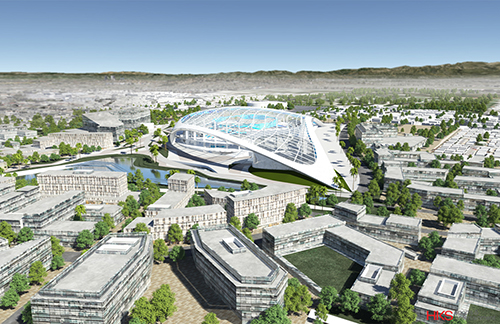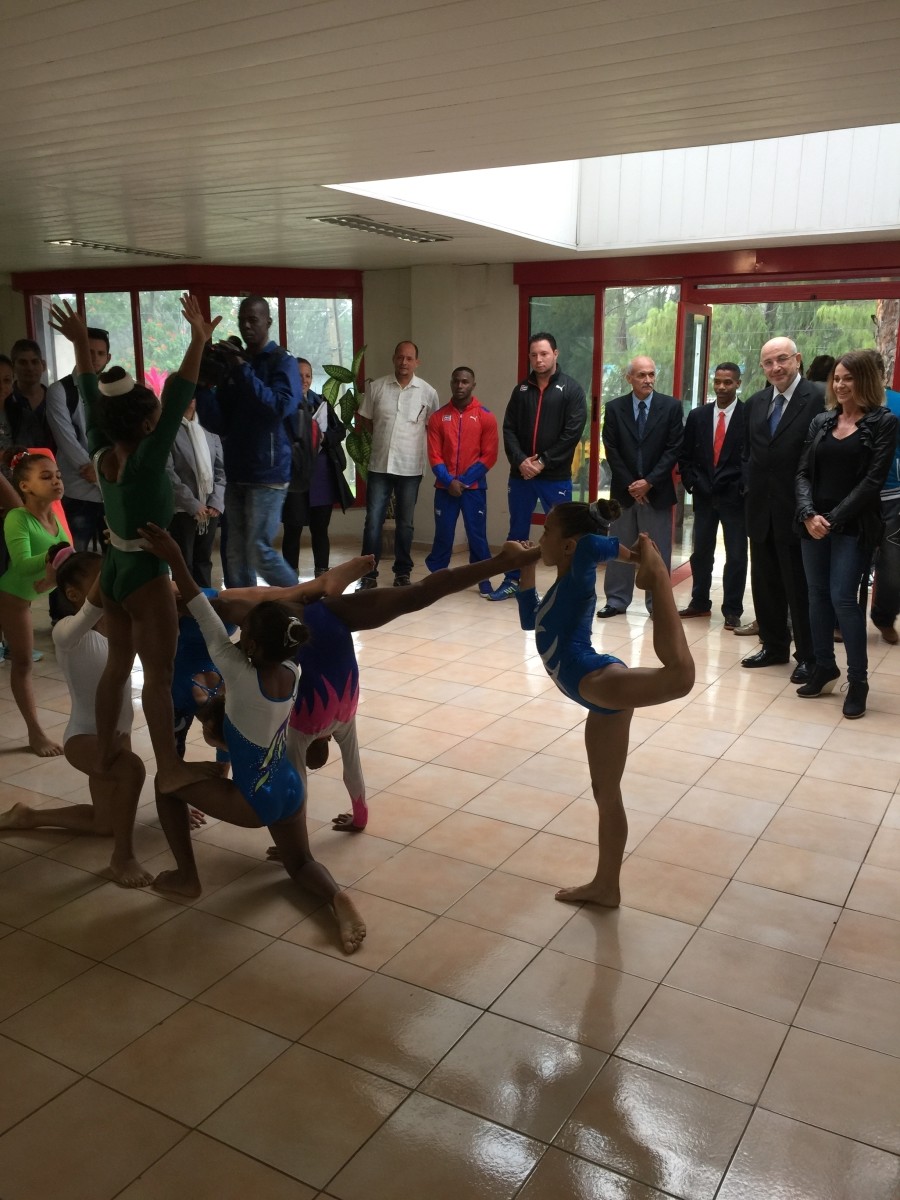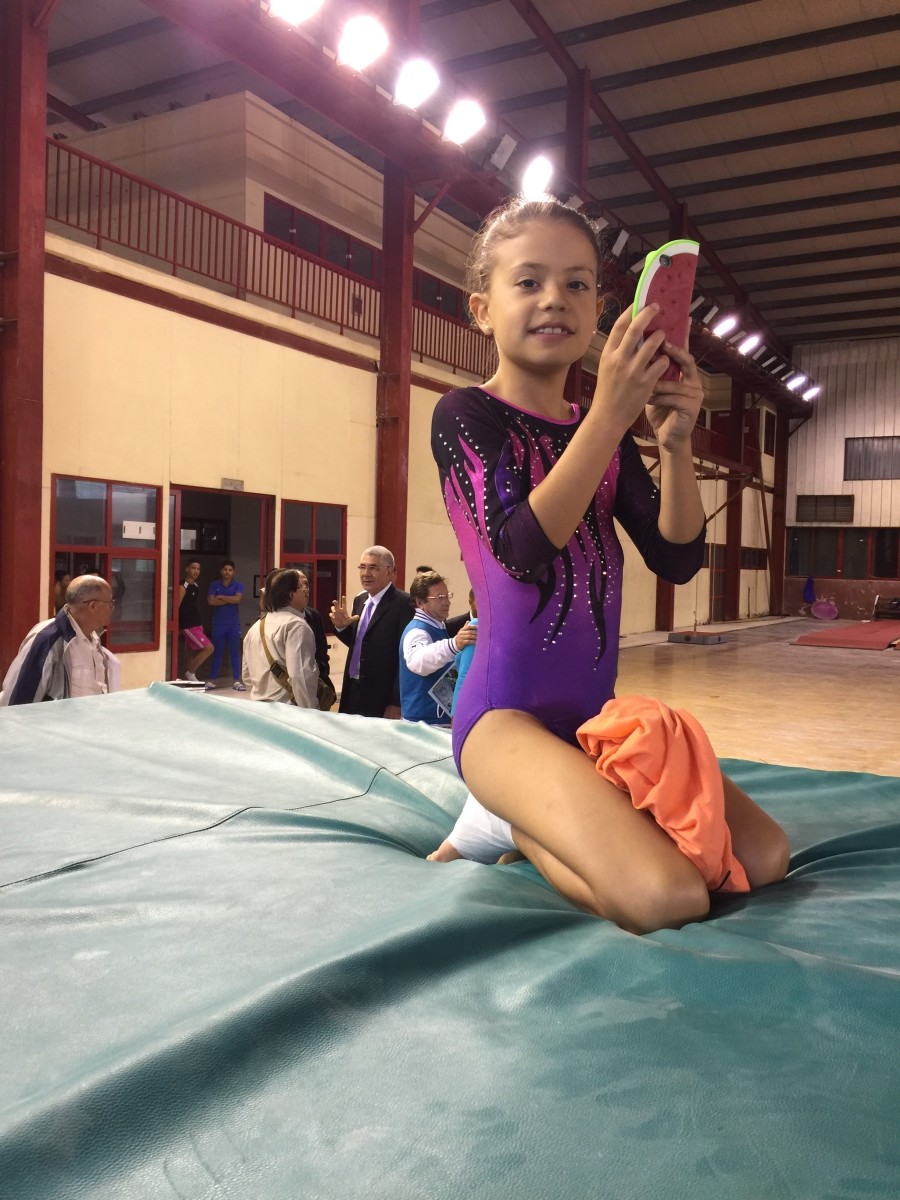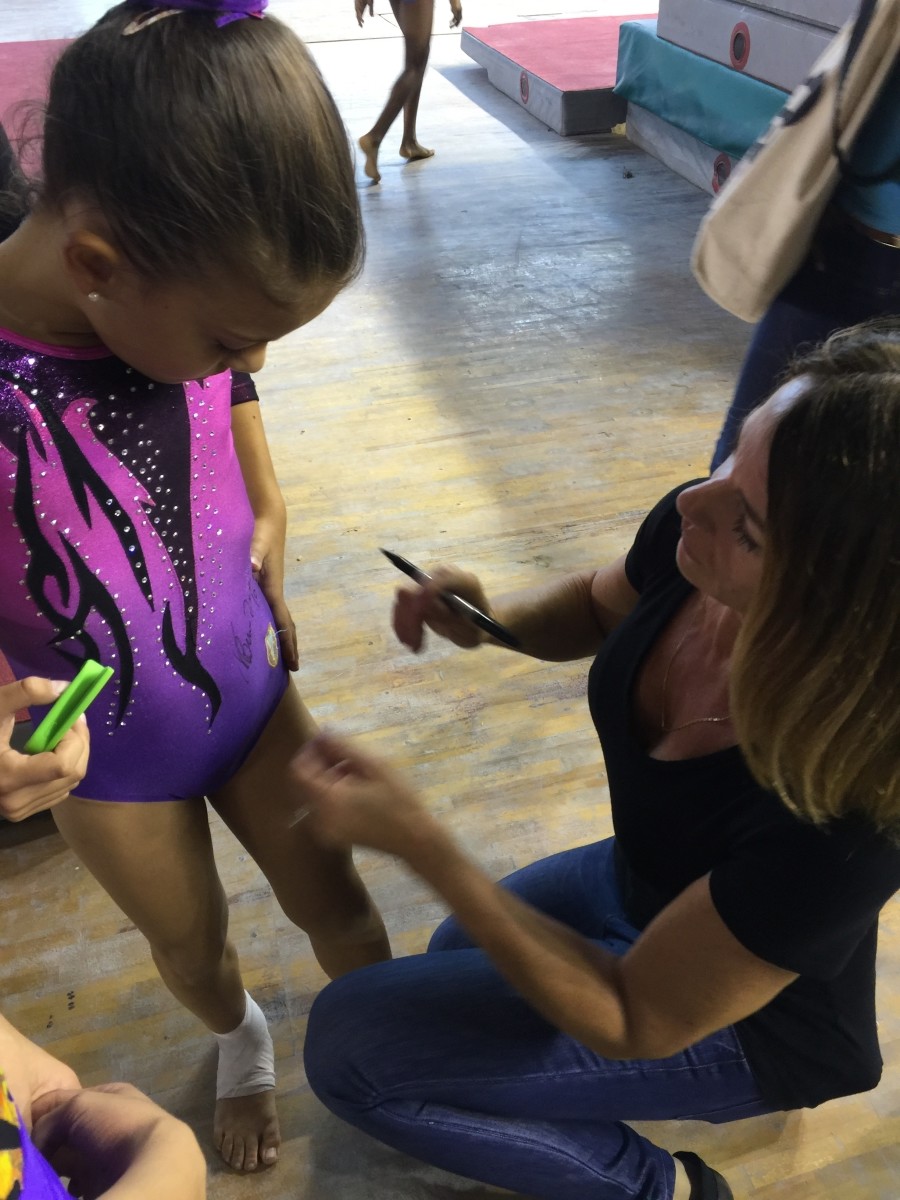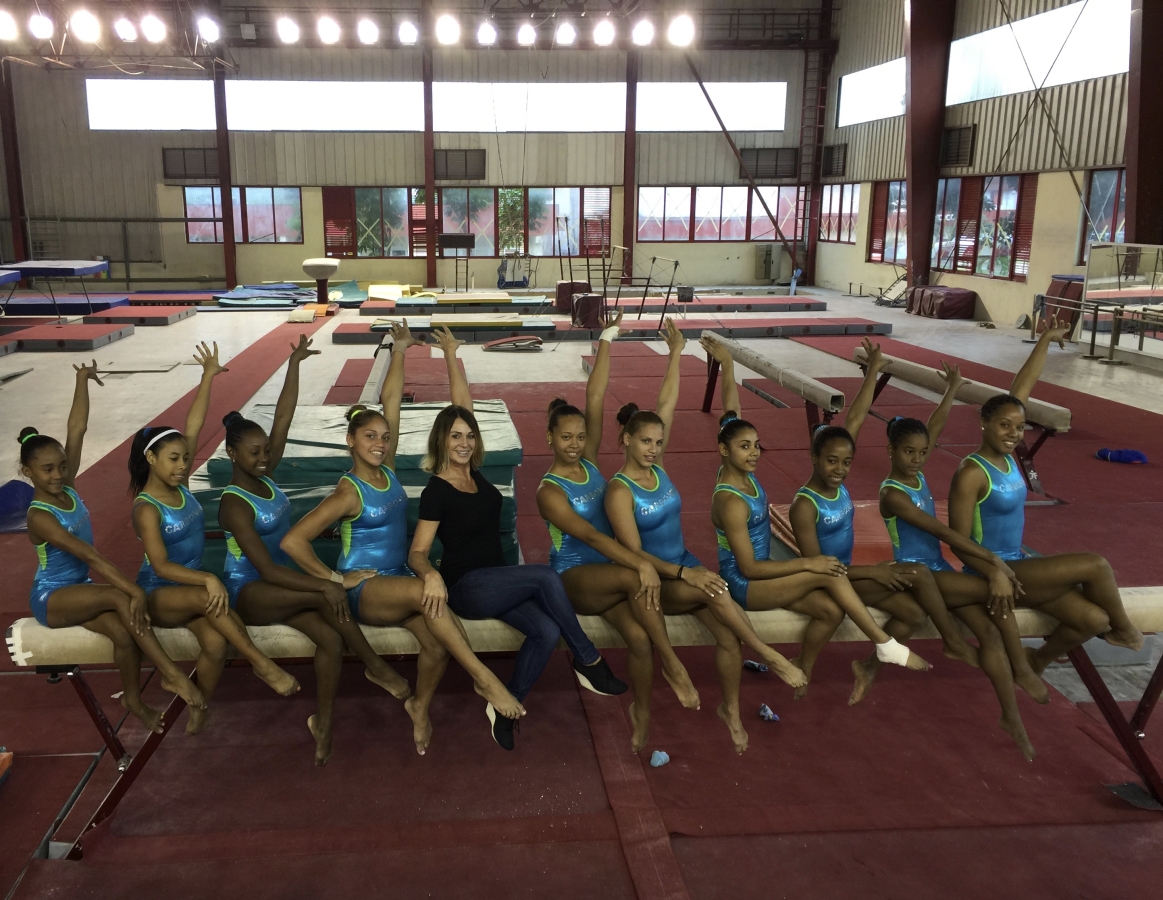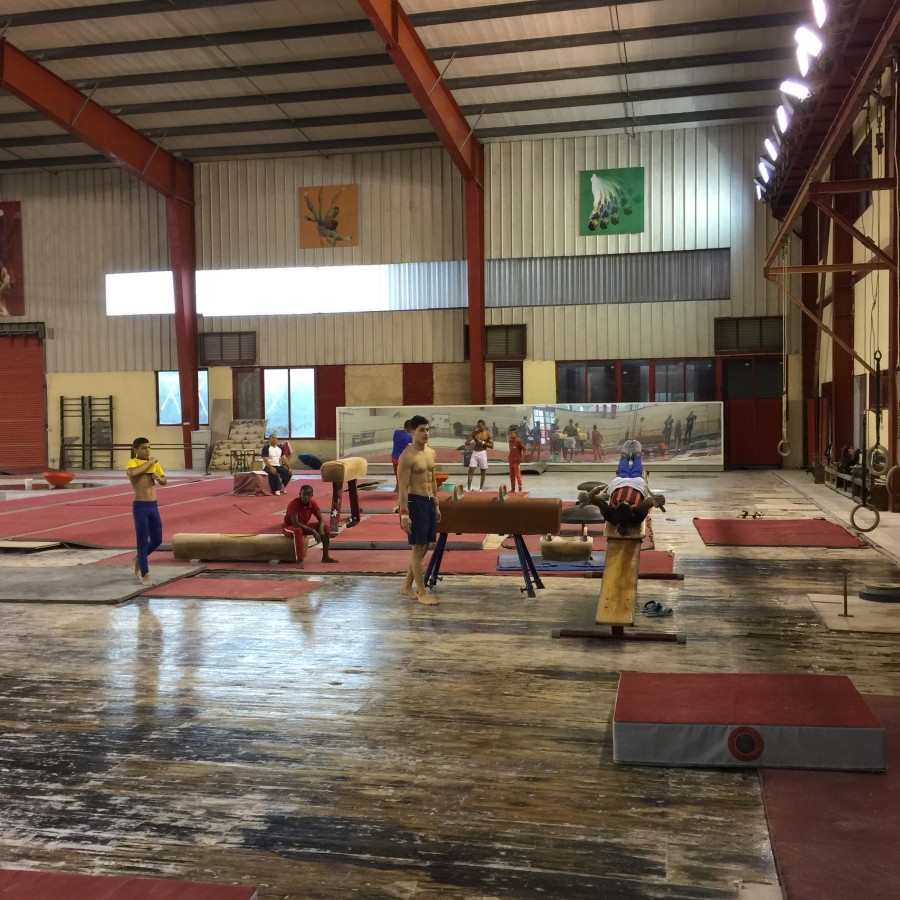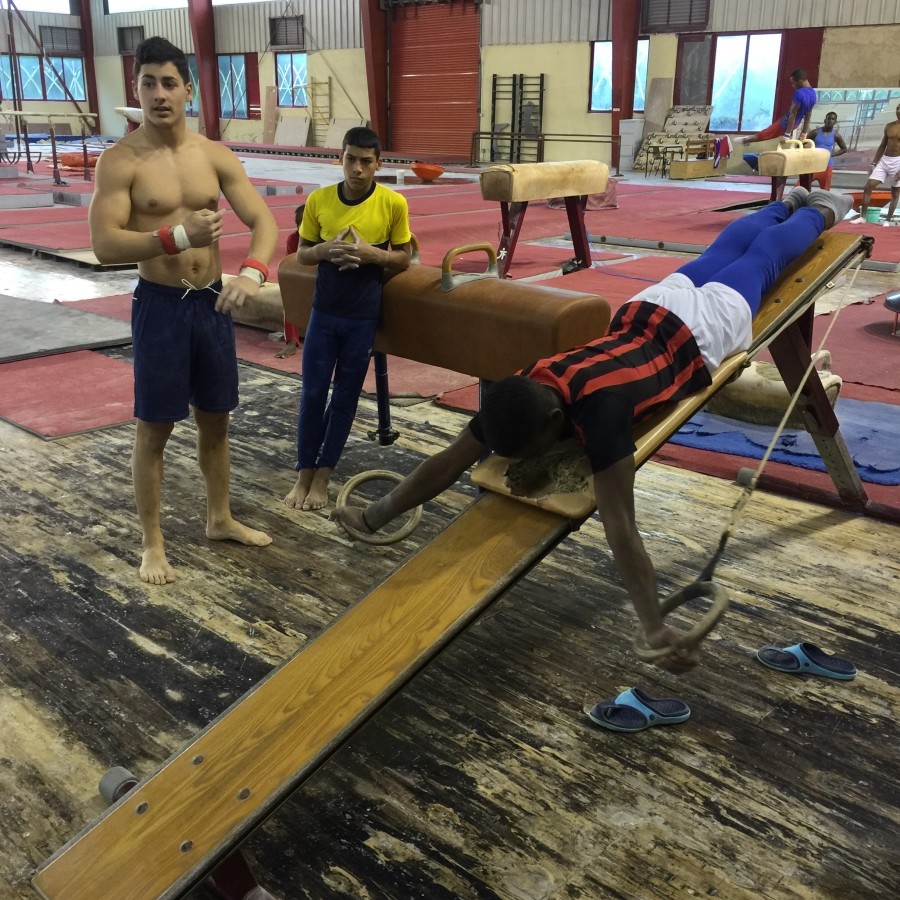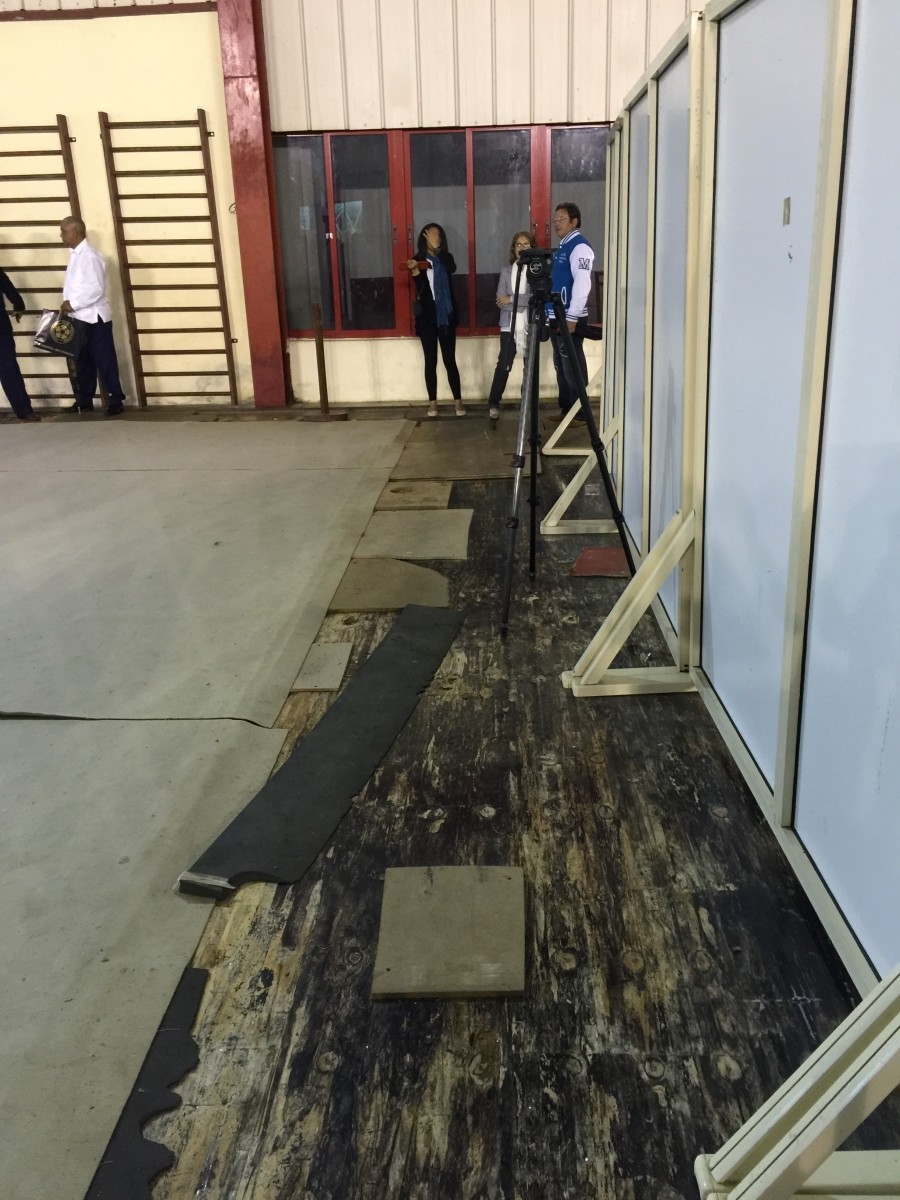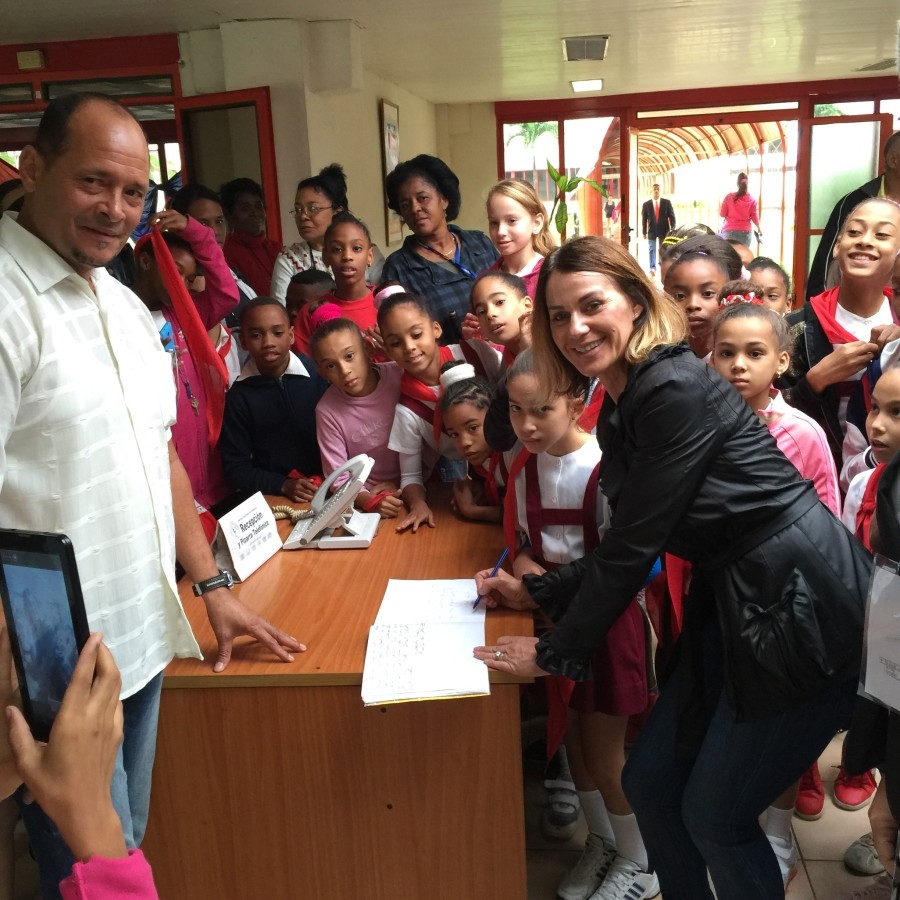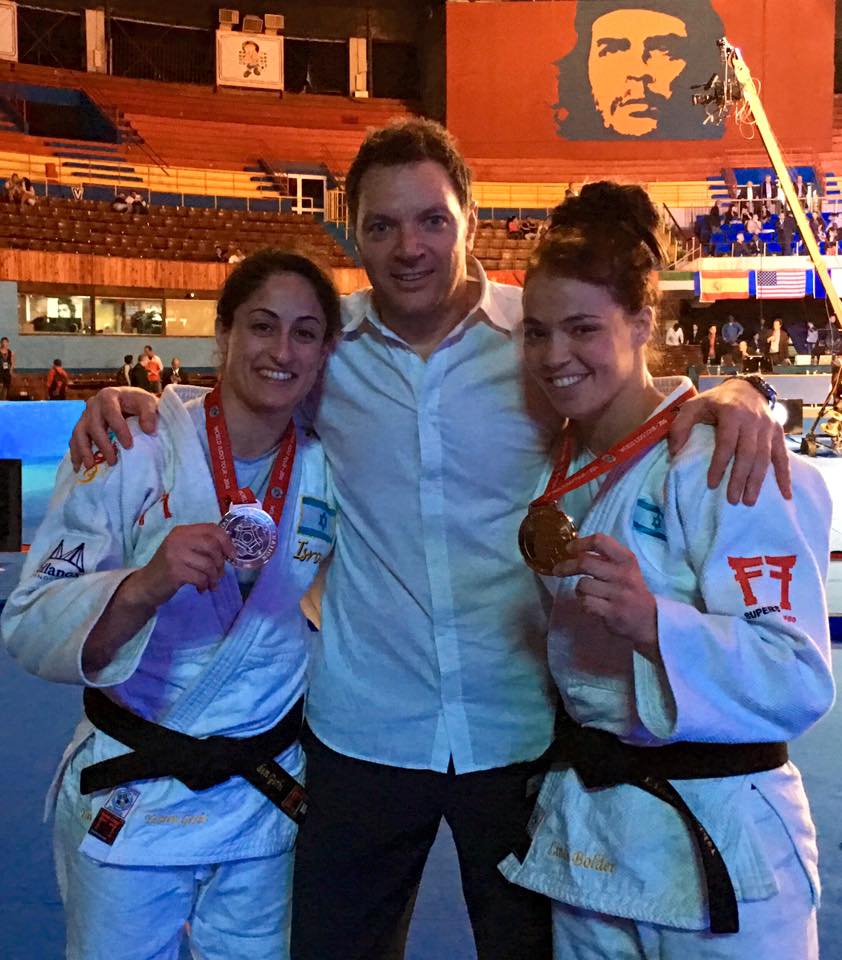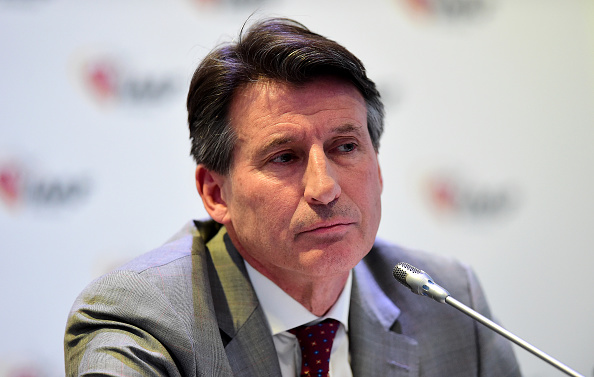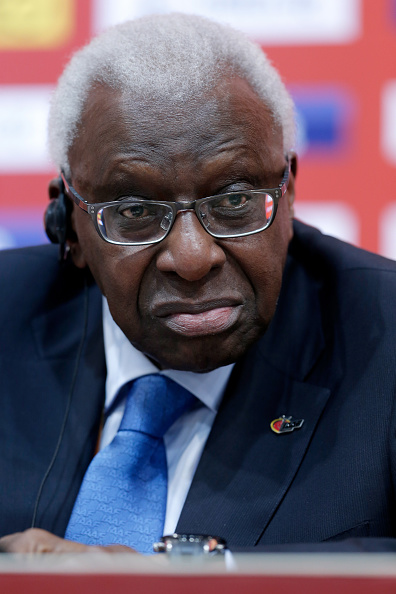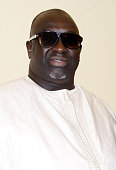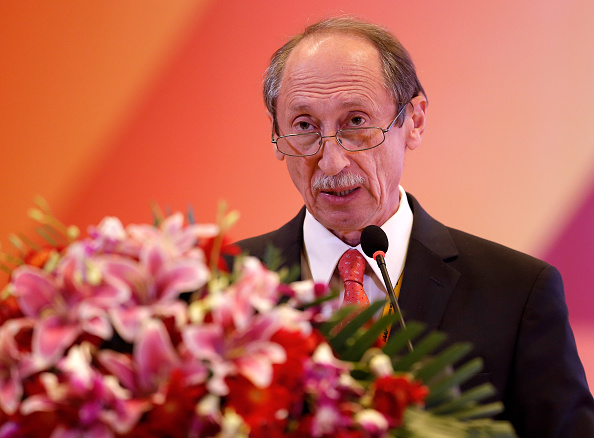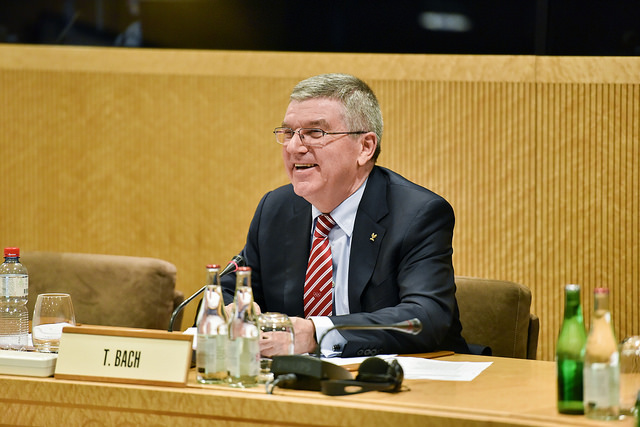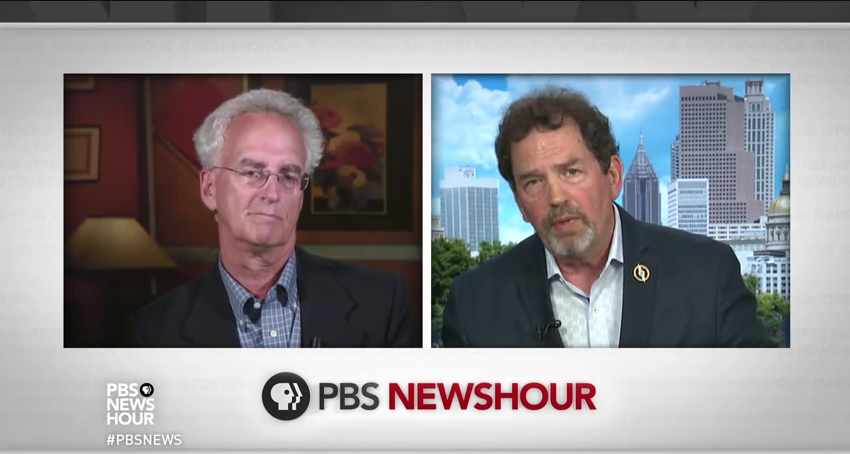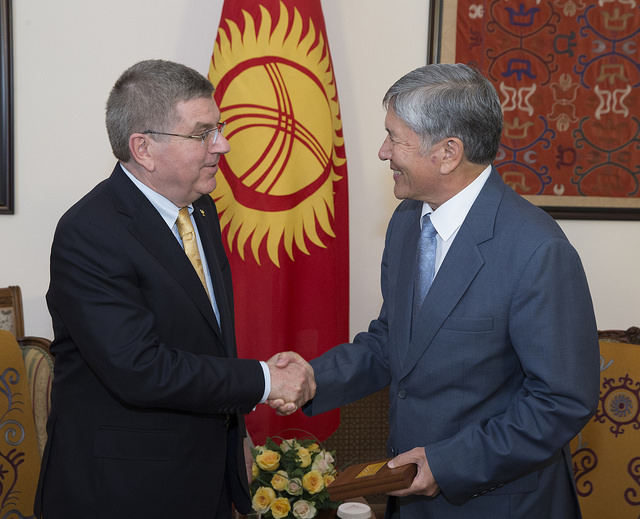Not everything that happens is itself worth a stand-alone column, even on the space-aplenty internet.
To that end, some recent news nuggets:
-- U.S. Olympic athletes send letter asking for other Russian sports to be investigated. Reaction: 1. There’s obviously a huge difference between state-sponsored or -sanctioned doping, and what has gone on, and for sure absolutely is going on, here. (If you think there are zero U.S. athletes engaged in the use of performance-enhancing substances, please send me a bank draft for a bridge in Brooklyn I would be delighted to sell you.) 2. The First Amendment says you can say almost anything you want. Have at it. 3. The risk, of course, is that such a letter — in the international sphere — appears completely, thoroughly sanctimonious. Lance Armstrong? Marion Jones? BALCO? Major League Baseball and the steroid era (probably the primary reason baseball is not back in the Olympic Games)? 4. With Los Angeles bidding for 2024, with every IOC member’s vote at issue, does it ever work for Americans to assume a position of such seeming moral superiority?
-- Premise: doping in Russia is bad and something has to be done. Not just in Russia. Everywhere. Reaction: 1. Obviously. 2. Seriously. 3. Now -- who's going to pay to put together a worldwide system that can really be way more effective? Let's start with $25-30 million, enough to more or less double the World Anti-Doping Agency's annual budget to the ballpark of $50-55 million. Where's that coming from? If you are an international sports federation, you don't have that kind of scratch. 4. Not even combined, the federations don't have it. 5. Governments? In virtually every country but the United States, funding for sport is a federal government function. 6. The IOC?
-- LA 2024 drops plans for an Olympic village near downtown, says if it’s picked that UCLA dorms would serve as athlete housing and USC would play host to a media village. Reaction: 1. This saves LA 2024 lots of money and removes an element of uncertainty from the bid file. 2. The biggest knock on LA is that it has played host twice to the Summer Games, in 1932 and 1984. In 1984, athletes stayed in the dorms at UCLA and USC. 3. Sure, the dorms at UCLA are better than you would find at universities in Europe. 4. The trick is convincing the European-dominated International Olympic Committee that 2024 is not a been-there, done-that. Going back to UCLA elevates that risk and is, frankly, going to require a major sales job. 5. The housing at USC is going to be really nice. Like, really excellent. The university is in the midst of a huge construction project that promises a thorough gentrification in its near-downtown neighborhood. But no one cares about the media. Clarification: none of the IOC members do, at least enough to swing a vote one way or the other.
-- LA 2024 gets a $2 billion stadium for the NFL Rams (and maybe another team). For free. Also, pretty much all major venues, and all hotels, are in place. And there’s a multibillion dollar-transit plan in the works that’s going to happen regardless of the Olympics. Reaction: 1. Is any city anywhere better-suited for the Summer Games? 2. Is the IOC ready — finally? — to embrace the Americans again? 3. If IOC president Thomas Bach really wants Agenda 2020 to be relevant, here is a world city that, as he has put it, not only talks the talk but walks the walk. 4. This is the most-important host city election in the modern era, determining the course of future bids. If the IOC keeps rewarding stupidity and waste, you have to ask, seriously, about its direction.
Watch out! @RampageNFL is loose in LA! https://t.co/zkwhvpn0ec 👀 pic.twitter.com/0SEbLJfcel
— Los Angeles Rams (@RamsNFL) January 19, 2016
-- A Danish survey, measuring and comparing national representation from 2013 to 2015 in international sport, declares the United States is far and away the most influential nation in the world. Reaction: 1. Is this a cosmic joke? 2. No U.S. Olympic bids for 2020 or 2022. Why? 3. Chicago 2016. 4. New York 2012. 5. That soccer World Cup bid for 2022? How'd that work out? 6. The United States is seriously lacking in top-level representation. Everyone in the Olympic world knows this. You've got the newly elected head of the International Tennis Federation, and one member of the IOC executive board -- and a handful of others who are, say, technical directors or even a secretary general. Because of the way IOC rules work, the chairman of the U.S. Olympic Committee board of directors, Larry Probst, is hugely unlikely to himself ever be on the IOC board. 7. The survey methodology: "The data behind the index consists of a total of 1673 positions across 120 international federations. Each position is weighed between 1 and 10 based on the level of sports political power. As an example, the president of the IOC scores 10, whereas a board member in a non-Olympic European federation receives the minimum score of 1." 8. There's an enormous difference between quantity of influence, which this survey purports to measure, and quality. To reiterate, see No. 3 and 4, which is why the USOC, with Probst and chief executive Scott Blackmun in particular, has spent the past six years rebuilding relationships internationally, including the resolution of a revenue-sharing deal with the IOC that had made it all but impossible for the U.S. to consider a bid.
-- Voters in Iowa due to caucus in the next few days, followed by balloting in New Hampshire, and we're off to the races. Reaction: 1. If you want the Olympic Games back in the United States in 2024, you want Hillary Clinton to win in November. 2. Say what? 3. Yep. 4. You really think that Donald Trump, who advocates walls and bans, is remotely on the same page as the Olympic spirit? 5. Hillary Clinton, when she was senator from New York, went to Singapore in 2005 to lobby for New York City’s 2012 bid. In 1996, President and Mrs. Clinton led the U.S. delegation to the Atlanta Games, and Bill Clinton formally opened those Olympics. In 1994, Hillary Clinton led the U.S. delegation to the Winter Games in Lillehammer, Norway. 6. Bill and Hillary Clinton have a longstanding relationship with LA 2024 bid chairman Casey Wasserman.
-- Five days in Cuba for the first Olympic sports event there since President Obama’s announcement of a new normal between the U.S. and the island nation. Reaction: 1. You can see how Havana was once lovely. 2. Now it’s just mostly crumbling. Dozens, hundreds, maybe thousands of concrete buildings are literally falling apart in the salt air. 3. You want potholes? You have maybe never seen roads so torn-up. It’s a wonder all those classic cars don’t fall into some of these potholes, which resemble nothing so much as sinkholes, never to plow forward again. 4. Big cars with fins are awesome. No seat belts — not so much. 5. My room at the Hotel Nacional was once the site of a mafia meeting. A plaque on the wall said so. 6. Frank Sinatra once stayed in the room next door. Another plaque. 7. If you get the chance, go to Havana now, before the flood of Americans — and all the corporate investment dollars — show up. It’s incredible in 2016 to go someplace and find no McDonald’s, no Starbucks, no Walmart. Not saying those brands are the zenith of American culture. But, you know, they're almost everywhere. Not Cuba. 8. It rained cats and dogs one night and seawater washed up nearly five blocks inland. Cuba is rich with potential but the infrastructure needs — the basics — are almost staggering: water, sewage, electricity, telephone, internet, roads, bridges and more. 9. U.S. mobile phones work pretty much everywhere in the world now. Not Cuba.
-- Alberto Juantorena, the track and field legend (gold medals, Montreal 1976, 400 and 800 meters), has for years now been a senior figure in Cuban sport. As of last August, he is also one of four vice presidents of track's international governing body, the IAAF, now headed by Sebastian Coe. (Historical footnote: it was Coe who, in 1979, broke Juantorena's world record in the 800, lowering it from 1:43.44 to 1:42.33. David Rudisha of Kenya now owns the record, 1:40.91, set at the London 2012 Games.) Two events in the next few weeks require Juantorena to pass through U.S. customs, one a meeting in Puerto Rico of what's called NACAC, an area track and field group, the other the indoor world championships in mid-March in Portland, Oregon. Juantorena has been granted one (1) visa by the U.S. authorities. That's good for one entry, not two. Reaction: 1. Someone in the U.S. government has to fix this. 2. And, like, immediately. 3. Juantorena or Antonio Castro, one of Fidel's sons, an activist in seeking the return of baseball to the Games, figure to be in the mix when the IOC gets around to naming a new member from Cuba. 4. Nothing will destroy the LA 2024 bid faster than word that it is difficult -- still, 14-plus years after 9/11 -- to get into the United States.
-- Run Gum, owned in part by U.S. 800-meter runner Nick Symmonds, files suit against the U.S. Olympic Committee and USA Track & Field, alleging an antitrust claim in connection with logo and uniform advertising rules at the U.S. Olympic Trials. Reaction: 1. Run Gum is a great product. The new cinnamon flavor is excellent. Recommendation: the gum is also great for people with migraines for whom caffeine is, as doctors like to say, medically indicated. Take it from someone who knows. 2. Why, though, the headache of a lawsuit? 3. The antitrust issues are nominally interesting but in the sphere of the Olympics the IOC's rules and, as well, the 1978 Ted Stevens Amateur Sports Act almost always control. 4. So why a lawsuit? You file lawsuits when a) you profoundly disagree about something, b) you negotiate but can't reach agreement and/or or c) maybe you're just looking for publicity. 5. USATF, under the direction of chief executive Max Siegel, has made tremendous efforts in recent months to not only reduce friction at all levels but to actively promote collegiality. The annual meeting in December was all but a love-fest. Last September, USATF and its athletes advisory council agreed on a revenue distribution plan that will deliver $9 million in cash to athletes over the coming five years. 6. It's all good to make a living at track and field. Every athlete should be able to do so. That's not the issue. 7. Again: it's why a lawsuit and what's the motive? Symmonds, asked about that Thursday, said with a laugh,"I think Nick Symmonds going on a date with Paris Hilton -- that's a publicity play," adding, "Engaging in litigation -- engaging in litigation with the people putting on the freaking Olympic Trials that I have to compete at -- all that pressure on my shoulders, why would I want to do that, unless I care about the sport?" 8. No question Symmonds cares about the sport. Even so, whatever disagreement you might have, you couldn't talk it out? It's January. The Trials run July 1-10. That's more or less six months away. 9. Symmonds, asked whether there had been an in-person meeting or extensive negotiation on the issue before the filing of the case, said, no. He said he had sought via email only to "engage in dialogue" with Siegel and with USOC marketing guy Chester Wheeler but that was "months ago." He asserted, "The goal is to level the playing field. Whether that's done through [pre-trial] resolution or ultimately to trial, I’m not sure. I just know it seems so unfair that only apparel manufacturers, only registered apparel manufacturers, are allowed to bid on that space. It just seems so grossly unfair. We are just trying to level the playing field." At the same time, he said, referring to litigation, "This option allows me to stay in Seattle and focus on training and and focus on making my third Olympic team, and allows lawyers to have that conversation for me. That's a conversation I don't have the time or energy or resources to have. I know my limitations. I'm not equipped to have that conversation." 9. It's intriguing that the case includes the same lawyers that pursued the O'Bannon antitrust matter against the NCAA. Because you're going for scorched-earth or because you're trying to reach a just result? 10. Symmonds likes to say that he is all for advancing athlete interests. Taking him at face value, because he assuredly has great passion about a great many things, it's also the case that lawsuits cost money. This particular lawsuit asks for triple damages and attorney's fees. As for damages -- who would that benefit? As for attorney's fees -- same question. In the meantime, the dollars it's going to take to defend this case -- whose pocket, ultimately, is that money going to come out of? Big-time lawyers don't come cheap. Try $600 an hour, and up. If you were on the USATF athletes' board, wouldn't you want to ask about that element -- in the guise of finding out who, ultimately, is being served?
-- Kuwait appeals court acquits Sheikh Ahmad al-Fahad al-Sabah of charges, overturning six-month jail sentence. The sheikh is a major powerbroker in Olympic and FIFA circles. Reaction: 1. What's going on in Kuwait, with various twists and turns, can all be tied to friction between Sheikh Ahmad and the Kuwaiti sports minister, Sheikh Salman al-Sabah. Sheikh Salman ran in 2014 for the presidency of the international shooting federation. He lost. 2. Never bet against Sheikh Ahmad.



